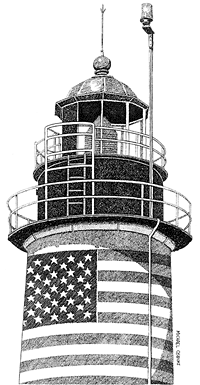Those dirty (fill in the blanks) turn into Americans

My grandmother, who was born on a farm in Cowlitz County in 1883, once told me with a twinkle in her eye that when she was young, her neighbors called Swedish immigrants "dumb" and "dirty."
The Swedes were "dumb" because they had only a basic education and they spoke English haltingly. They were "dirty" because they always did the toughest, dirtiest jobs no one else wanted to do — cleaning other people's barns, houses and shops, setting chokers on logging crews, moving from farm to farm during harvest to help bring in the crops on time.
The Swedes, Norwegians and Finns who came to Washington state were usually among the poorest in their home country, those who couldn't afford a home, a farm or a fishing boat back in Europe and came here looking for a better life. They certainly weren't the upper crust.
But Scandinavian immigrants were needed to make the economy hum, and to populate parts of America where settlers were needed: Northern Minnesota, the Dakotas, Montana. In fact, South Dakota wanted homesteaders so badly that its 1889 constitution allowed noncitizens to vote if they declared an intent to stay in the state for good.
My grandmother had that twinkle in her eye because she found it amusing, three-quarters of a century later, that Americans ever thought of Scandinavians as anything but very smart and very clean.
Yet, that is how we have always reacted to the latest group of people who arrived in this country: They talk funny. Most of them don't have college degrees. They have odd customs.
That's how it was when the Irish came in the mid-19th century, packed in "coffin ships," to escape the famine at home — often smuggled in illegally. They were ridiculed for their speech and their dress. They were forced into crowded but expensive tenements. They did the toughest, dirtiest jobs that "real Americans" didn't want to do.
The Irish were resented. The Chicago Post wrote: "The Irish fill our prisons, our poor houses. ... Scratch a convict or a pauper, and the chances are that you tickle the skin of an Irish Catholic. Putting them on a boat and sending them home would end crime in this country."
Then there were the Chinese, recruited to build the railroads in the West while Irish workers were doing the same in the East and Midwest. Chinese were desperately needed. They took the hardest and most dangerous jobs that "real Americans" didn't want. By 1880, 25 percent of California's work force was Chinese.
But they were resented because they looked different, talked funny, and had strange customs. These attitudes led to the Chinese Exclusion Act in 1882, which blocked new immigrants from China for almost 100 years. In 1886, rioters in Seattle, Tacoma and Port Townsend tried to force Chinese workers onto boats to "send them back where they came from" — which was San Francisco!
It was the same story with the Italians, Filipinos, Japanese and the Jews. They were all viewed as "dumb," "dirty" and "different" when they came to America. They were all needed. They were all resented.
And today? They are all just plain Americans.
It sounds odd to hear Latin American workers referred to as "aliens" as though they come from Mars. But if America needed immigrants from Mars to do the least desirable jobs in our economy, they would come.
Those Martians would be looked down upon. But after a few years, they would miraculously change into fine upstanding citizens, just like those formerly "dumb and dirty" Swedes.
Hugh D. Spitzer is an affiliate professor at the University of Washington School of Law and an attorney with Foster Pepper.
